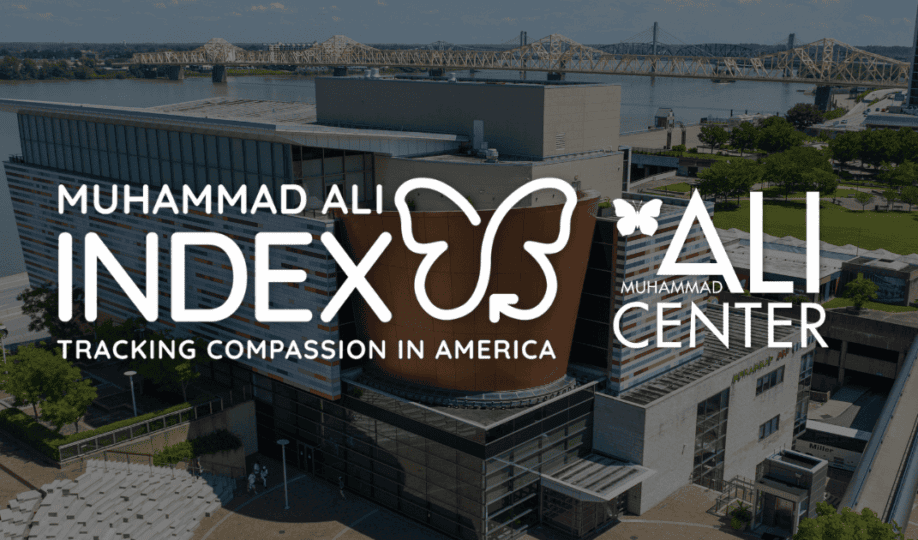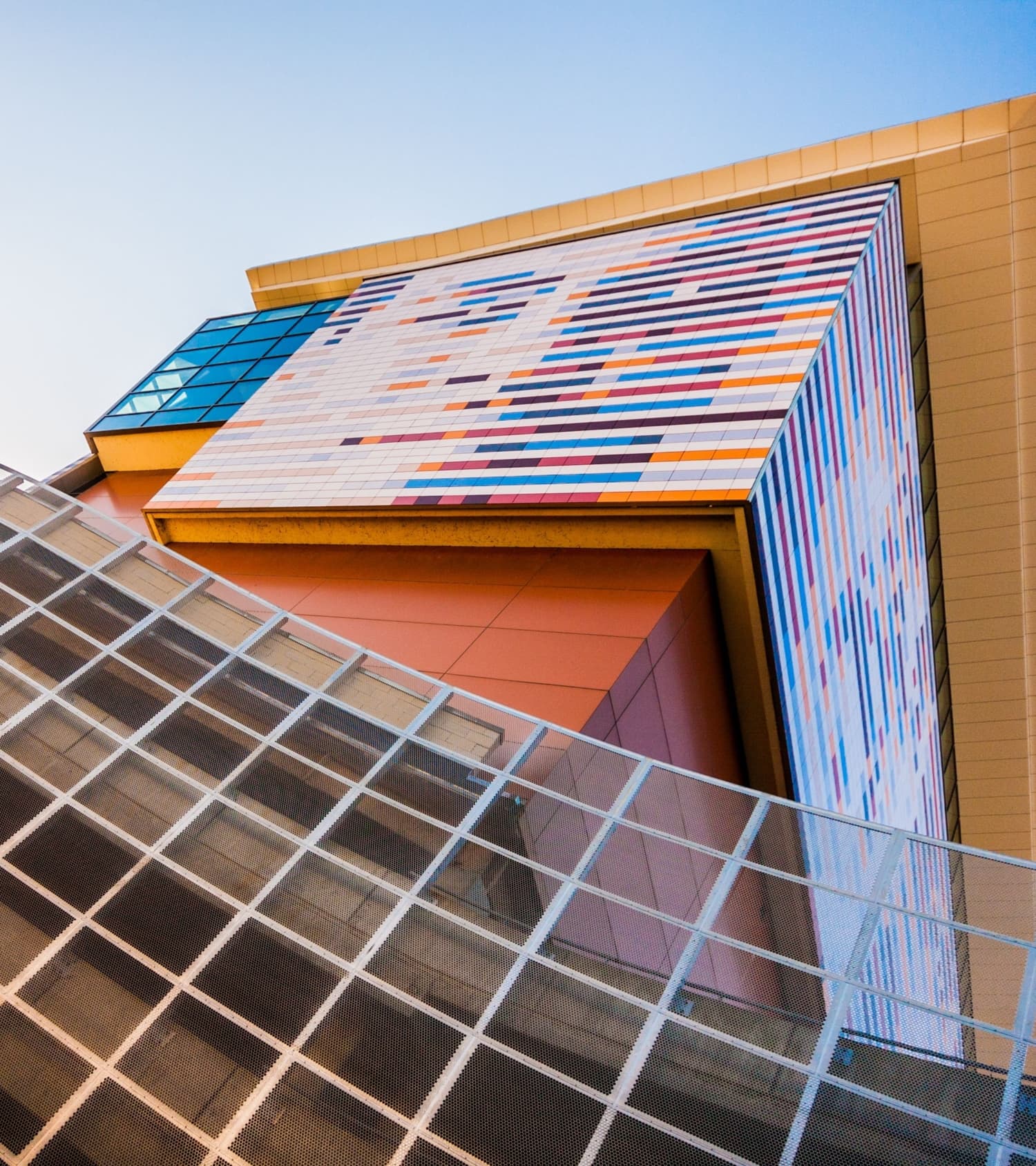Ali Center Releases Groundbreaking Study on Compassion in America

4,000% Surge in Compassion-Related Online Searches as More Americans Report a Decline in Compassion Amid Growing Polarization
NEW YORK (January 15, 2025) — The Muhammad Ali Center has debuted the Muhammad Ali Index’s “The 2025 Compassion Report” – a revolutionary, data-driven study on the state of compassion in America – and invites all Americans to sign the Ali Compassion Pledge.To honor and celebrate what would have been Muhammad Ali’s 83rd birthday on Jan. 17, this first-of-its-kind national study reveals the key cultural and behavioral trends that shape compassion in America, including spirituality, self-care, education, health care, sports, and politics—the six “Compassion Sweet Spots.” Through the development of a new metric called the “Net Compassion Score” (NCS) and a comprehensive survey across diverse cities nationwide, the Muhammad Ali Index fosters greater understanding and empowers city officials and the public to champion more inclusive, compassionate communities. The 12 cities featured in the inaugural survey are Atlanta, Chicago, Dallas/Fort Worth, Denver, Jacksonville, Las Vegas, Los Angeles, Louisville, New York City, Phoenix, San Antonio, and Seattle.
“Throughout his life, my husband Muhammad believed and demonstrated that compassion is the strongest force we have in the fight for justice,” said Lonnie Ali, Chair of the Muhammad Ali Index and Co-Founder of the Muhammad Ali Center. “The Muhammad Ali Index is a continuation of his life’s work of building a more just and compassionate world – one where everyone has the opportunity to reach their own greatness.”
“The 2025 Compassion Report” reveals troubling trends, including growing polarization, with 61% of Americans saying they feel a decline in compassion in the last four years and 70% expressing a desire for reduced aggressive political rhetoric. Respondents also claim a decrease in empathy toward marginalized groups: Only 1 in 3 Americans feel compassion for all groups of people, with the lowest compassion levels for people who have been convicted of crimes, migrants who are here illegally, and people in higher socio-economic classes. Despite expressing greater awareness of systemic challenges, women report lower self-compassion than men.
“This is a landmark study of national and global significance. The Muhammad Ali Index provides critical data to help communities foster compassion,” said Farah Pandith, Muhammad Ali Global Peace Laureate and pioneer and leader in countering violent extremism. “With the right local solutions, we can address the rise in polarization and hate—an opportunity we must seize now.”
Remarkably, compassion-related online searches have skyrocketed by 4,000% over the past five years, signaling a growing national interest for empathy and understanding. Additionally, cities that have a higher NCS perform better in fostering mental health, housing and community programs; active civic participation structures with strong communication systems; and leadership that prioritizes inclusive community development. “The 2025 Compassion Report” reveals that compassionate cities tend to have more engaged and proud residents, suggesting that compassion is a critical driver for community well-being and societal progress.
“‘The 2025 Compassion Report’ holds up a mirror to society, challenging us to reflect on who we are and how we show up for one another,” said DeVone Holt, President and CEO of the Muhammad Ali Center. “The findings are urgent and timely, and it is also encouraging — reminding us that while compassion is at risk, it’s also something we can strengthen if we choose to act with awareness.”
Additional key findings from The Muhammad Ali Index’s “The 2025 Compassion Report” include:
- The research identifies Five Layers of Compassion: compassion for self, individuals, groups, local area, and nation. Each layer is aligned with specific trends, offering valuable insights into the current state and trajectory of compassion in the United States. Notably, the research reveals that self-compassion is the foundation of all compassion: Compassion starts with the individual, where self-care and personal wellness are critical foundations for broader compassionate action.
- Cities that score highly (the NCS is on a scale of -100 to 100) perform better at fostering community engagement and civic participation, according to their residents. Seattle, Louisville, and Atlanta share three critical success factors: Comprehensive resource integration connecting mental health, housing, and community programs; active civic participation structures with strong communication systems; and leadership that prioritizes inclusive community development.
- Louisville’s stronger NCS of 15 correlates directly with its residents being 12% more likely to say they have access to community resources, demonstrating the critical relationship between engagement opportunities and compassionate outcomes. In contrast, citizens in lower-scoring cities like Las Vegas (NCS: -13) and Jacksonville (NCS: -1) say they struggle with finding adequate career opportunities, access to resources, and opportunities for community engagement.
- Sixty-one percent of people who are proud of their city perceive it as compassionate.
- Companies may be spending money on the wrong solutions: While 60% of American businesses ran etiquette training in 2024, only 11% of people turn to their coworkers when they need compassionate support. When asked who makes the most significant difference in creating compassionate cities, people ranked business leaders (8%) and big companies (6%) at the very bottom of the list. This suggests that typical workplace training programs aren’t doing much to build compassionate teams.
- We observe a paradox within America’s individualistic culture: Despite heightened self-focus with the personal coaching industry doubling from 2019 to 2024, one-third of U.S. adults surveyed demonstrate below-average self-compassion metrics. Nearly two-thirds (63%) of respondents said they believe they can be compassionate towards others without being compassionate towards themselves.
- Nearly two out of three people say they prefer to learn about compassion from “everyday people” rather than political leaders, social leaders, or experts.
About The Muhammad Ali Index’s “The 2025 Compassion Report”
The Muhammad Ali Index’s inaugural “The 2025 Compassion Report” is a cornerstone of the Muhammad Ali Center’s vision of a just and compassionate world where all people can reach their greatness.
The Muhammad Ali Center partnered with sparks & honey, a cultural intelligence consultancy to analyze the fundamental drivers, motivations, and barriers to compassion in America through a comprehensive cultural analysis combined with a survey of 5,400 Americans across 12 diverse metropolitan cities.
“The 2025 Compassion Report” aims to develop innovative solutions for measuring, predicting and cultivating compassionate action, enabling leaders to address both immediate and emerging community challenges.
On Jan. 16, the Muhammad Ali Center, together with distinguished partners, will present the inaugural Ali Compassion Summit at the Idealist Headquarters in New York City to discuss key findings from the study, as well as present panel conversations with community leaders and policymakers on ways to adopt “The 2025 Compassion Report” to help inform policies, procedures, and programs nationwide.
The Muhammad Ali Center invites all Americans to take a stand for empathy and unity by signing the Ali Compassion Pledge, a personal commitment, grounded in the findings of the Muhammad Ali Index, to practice compassion daily and help build more understanding, inclusive communities nationwide. Sign the Ali Compassion Pledge here.
###
For Press Inquiries:
MuhammadAliIndex@ledecompany.com
About The Muhammad Ali Center:
The Muhammad Ali Center is a 501(c)(3) that prides itself on being much more than a museum. As an athlete, a humanitarian, a global voice and man guided by faith, Muhammad Ali embodied a pursuit and belief in the greatness found in all people. Founded in 2005 by Lonnie and Muhammad Ali in his hometown of Louisville, the Center is dedicated to honoring Ali and continuing work based on his core principles.
